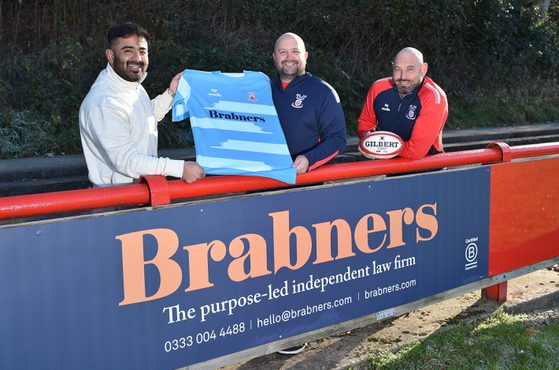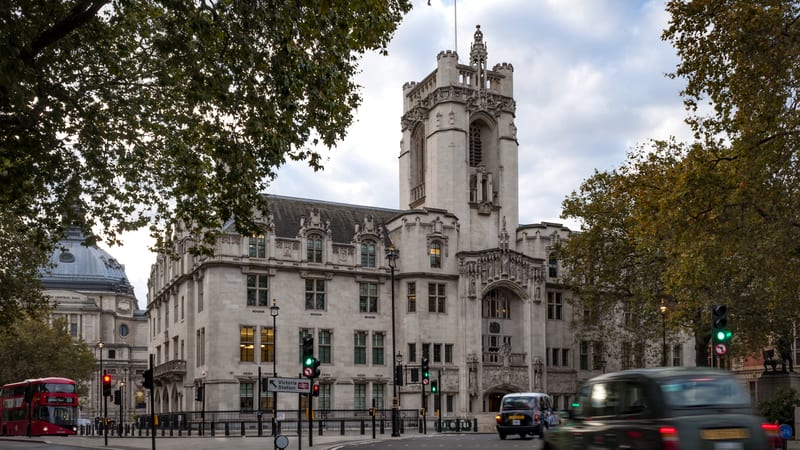Brabners lines up support for historic Lancaster rugby club with shirt sponsorship

We’re proud to be supporting Lancaster’s Vale of Lune RUFC by sponsoring the team’s away shirts for the next two seasons.
Read more
We make the difference. Talk to us: 0333 004 4488 | hello@brabners.com
AuthorsHelen Otty

Our litigation team has successfully appealed to the Supreme Court in a landmark ruling that’s described as being the leading case on malicious falsehood and likely to have significant implications for media law.
The Supreme Court decision has now been handed down in the matter of George v Cannell & LCA Jobs. In overturning the decision of the Court of Appeal, the Supreme Court determined — by a three-to-two majority decision — that Ms George was only entitled to £5 in nominal damages for her claim in malicious falsehood.
Other parties — including international human rights organisation Media Defence — were granted permission to intervene in the case amid concerns that the Court of Appeal’s earlier interpretations of law of malicious falsehood would limit the press’s right to free expression.
Here, Partner Helen Otty — who led the case with support from Paralegal Edward Lunt — presents the facts of the case and offers her perspective on its legal ramifications.
The central question to be determined by the Supreme Court was “what does a claimant need to establish to rely on section 3(1) of the Defamation Act 1952 in a claim for malicious falsehood” — alongside whether Ms George was entitled to damages for her injury to feelings where it was established that a “malicious falsehood” hadn’t caused her any financial loss.
As in this case, claims in malicious falsehood are often brought alongside defamation claims where a false statement has been made regarding an individual’s profession. While success in a defamation claim requires the claimant to show that they’ve suffered ‘serious harm’ to their reputation, the law of malicious falsehood is quite different as it instead concerns economic interests.
Where there has been a malicious falsehood, it can be difficult for a claimant to establish what financial loss has been suffered as a result. For instance, if a false statement was made regarding a car dealer, they may struggle to prove how many additional vehicles they would have sold had that statement not been made.
To cover this situation, section 3(1) of the Defamation Act 1952 provides that:
“In an action for slander of title, slander of goods or other malicious falsehood, it shall not be necessary to allege or prove special damage – (a) if the words upon which the action is founded are calculated to cause pecuniary damage to the plaintiff and are publishing in writing or other permanent form; or (b) if the said words are calculated to cause pecuniary damage to the plaintiff in respect of any office, profession, calling, trade or business held or carried on by him at the time of the publication.”
This means that in certain circumstances the Court can assume there has been financial loss.
The question in this case was precisely how this clause should be interpreted and whether it can cover a situation where no financial loss was caused but where there had been a risk of such loss at the time of publication. So, does this entitle a claimant to an award of damages and could they be awarded damages for the ‘upset’ allegedly caused by the false statement?
Our client LCA Jobs Limited and its owner Lynda Cannell had been sued for libel, slander and malicious falsehood by a former employee, Ms George.
Ms George claimed that Ms Cannell had falsely alleged to her new employer (and a potential client) that she was acting in breach of non-solicitation restrictions in her contract with LCA Jobs Limited.
Ms George maintained that although she didn’t suffer any financial loss, she could have suffered a financial loss — and that this was a sufficient trigger for an award of damages for malicious falsehood, including damages for alleged distress.
Despite Ms Cannell having taken advice from her HR legal advisers before publishing the communications, it was found at trial that she had known that the statement made was false at the time of the publication — thereby establishing ‘malice’.
However, Judge Saini determined that Ms George hadn’t suffered any harm to her reputation or financial loss due to the false statement. Ms George therefore failed in her libel and slander claims because she couldn’t establish that there had been serious harm. Ms George also failed in her malicious falsehood claim on the basis that Ms Cannell hadn’t caused a financial loss to Ms George ([2021] 4 WLR 145).
This meant that the claim failed in full.
While the decision in the defamation claim wasn’t appealed, the malicious falsehood decision was.
The Court of Appeal reversed the malicious falsehood decision and held that although Fiona George couldn’t recover significant damages for financial loss because she hadn’t suffered any, she could recover damages for the injury to her feelings caused by the publication of false and malicious statements to the two third-parties.
Ms Cannell and LCA appealed this decision to the Supreme Court.
In overturning the decision of the Court of Appeal, the Supreme Court made the following main findings:
The Supreme Court’s interpretation of the law differed to that of the High Court and Court of Appeal in determining that the test to be applied was whether loss was likely to be caused at the time of publication but that was open for the Court to find — based on the evidence — that there was no actual loss and therefore only award nominal damages. It then found that, in the absence of any significant financial loss, there was no entitlement to an award of damages for injury to feelings. Where there was only a notional loss, entitling an award of nominal damages, there was no gateway to a claim for injury to feelings.
The Supreme Court awarded nominal damages of £5 to Ms George and refused to award any damages for injury to feelings.
We warmly welcome the Judge’s ruling and the closure this hopefully brings for our client after four years of litigation. Our clients are happy with the Supreme Court’s decision and the fact that they’re not required to pay substantial damages to Ms George.
Ms George has now been unsuccessful in both her claims in defamation and (in practical purposes) her claim in malicious falsehood.
From a legal perspective, the test under 3(1) has been clarified. The outcome is that it remains significantly wider than many practitioners had believed it to be prior to this decision. If a claimant can establish ‘malice’ and the defendant can’t establish that no loss was suffered by the claimant, then there’s a risk that an award of damages for injury to feelings could be made.
Our commercial disputes and litigation experts offer the solutions you need to prevent disputes from damaging your business. Our clients include prominent personalities from the worlds of sport and entertainment, as well as businesses of all sizes.
We act in a range of high-profile disputes, including cases that involve sums in excess of £40m and attract worldwide press coverage.
Talk to us by completing our contact form below.

Loading form...

We’re proud to be supporting Lancaster’s Vale of Lune RUFC by sponsoring the team’s away shirts for the next two seasons.
Read more

We explore how the Court considered the requirement of promptness, the arguments made and what this means for claimants considering judicial review.
Read more

Our corporate team advised the shareholders of Rural Solutions on its acquisition by Celnor Group, an investor in businesses across the TICC sector.
Read more